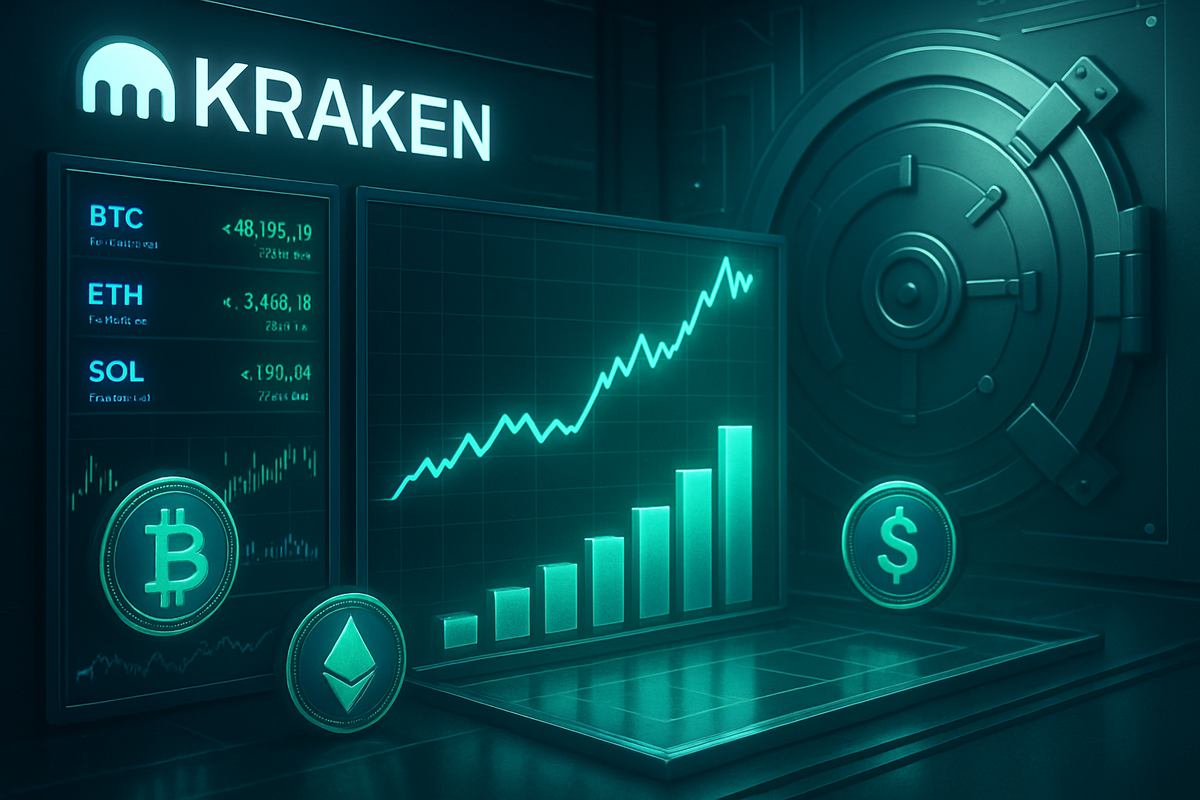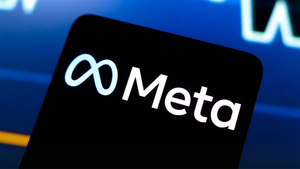
In a significant development for the burgeoning cryptocurrency market, Kraken, one of the world's leading digital asset exchanges, is reportedly in advanced discussions to secure a new funding round that could push its valuation to an impressive $20 billion. This ambitious move comes hot on the heels of a recently closed $500 million funding round at a $15 billion valuation, underscoring a powerful surge in investor confidence in the crypto infrastructure sector. The ongoing capital injection highlights Kraken's aggressive growth trajectory and its strategic positioning ahead of an anticipated initial public offering (IPO) in 2026.
This series of substantial funding rounds is not merely a financial milestone for Kraken; it represents a pivotal moment for the broader cryptocurrency industry. As regulatory clarity improves and institutional adoption accelerates, investors are increasingly looking to established and compliant infrastructure providers like Kraken. The influx of capital is earmarked for crucial initiatives, including product diversification, expansive geographic penetration, and robust regulatory compliance, all of which are critical for navigating the evolving digital asset landscape and cementing Kraken's market leadership.
Kraken's Ascent: A Detailed Look at the Funding Frenzy
The current buzz centers around Kraken's pursuit of an additional $200 million to $300 million from a strategic investor, a move that would elevate its valuation to a staggering $20 billion. This follows a successful, albeit quietly conducted, $500 million funding round completed just weeks prior, which had already placed the exchange's value at $15 billion. This rapid succession of capital raises underscores both the company's compelling growth story and the fervent investor appetite for well-positioned players in the crypto space.
These funding activities are incredibly current, unfolding around late September 2025. The preceding $500 million raise saw participation from a diverse group of investment managers, venture capital firms, and notably, Kraken co-CEO Arjun Sethi through his firm Tribe Capital. Sethi, who assumed the co-CEO role in October 2024, has been instrumental in steering the company's strategic overhaul and expansion efforts. Prior to this year, Kraken, founded in 2011, had raised a comparatively modest $27 million in primary capital, making these recent rounds a dramatic shift in its financial trajectory. The funds are slated for ambitious plans, including the launch of commission-free equities trading, tokenized assets, and a global money application. Furthermore, the company aims for significant geographic expansion, particularly into Latin America, and a strengthening of its regulatory frameworks to align with upcoming U.S. CLARITY Act and EU MiCA compliance. These moves follow Kraken's strategic acquisition of retail futures trading platform NinjaTrader in March 2025 for $1.5 billion, further diversifying its offerings.
Key players in these high-stakes negotiations include Kraken itself, the unnamed strategic investor poised to inject the latest capital, and existing participants like Tribe Capital. Adding to the strategic weight, investment banking giants Goldman Sachs and Morgan Stanley are reportedly advising Kraken on its anticipated 2026 IPO, signaling the company's serious intent to enter public markets.
Initial market reactions to Kraken's escalating valuation expectations have been overwhelmingly positive. The centralized exchange sector experienced a robust surge, with its aggregate market capitalization reaching $162 billion, driven by over $4.7 billion in inflows within a 24-hour period. This optimistic sentiment rippled across various exchange tokens, with Binance's (BNB) token climbing 3.3% to $972. Other prominent tokens like FTX's (FTT), OKB, and Bitget's (BGB) also registered notable gains. This positive market response is a clear indicator of growing investor confidence in crypto infrastructure companies, fueled by improving regulatory landscapes and the accelerating embrace of digital assets by institutional players.
Shifting Tides: Winners and Losers in a Rapidly Evolving Market
Kraken's aggressive expansion, fueled by its significant funding rounds and strategic initiatives, is poised to create a ripple effect across the financial landscape, delineating clear winners and losers in a rapidly evolving market. The exchange's move into product diversification, geographic expansion, enhanced regulatory compliance, and a planned IPO will intensify competition and forge new partnerships across the cryptocurrency and traditional finance sectors.
Among the most directly impacted will be other major centralized cryptocurrency exchanges. Competitors such as Coinbase (NASDAQ: COIN) will face heightened pressure, particularly in the U.S. regulated market, as Kraken expands its offerings to include commission-free equities trading and derivatives, directly vying for institutional and retail market share. Similarly, Binance, a global behemoth, will encounter increased competition from Kraken's push into Latin America and its fortified regulatory posture, which may appeal more strongly to institutional clients wary of past regulatory scrutiny. Derivatives-focused platforms like Bybit will also feel the squeeze as Kraken, bolstered by its acquisition of NinjaTrader in March 2025, solidifies its presence in the futures trading arena.
Beyond direct crypto competitors, Kraken's foray into tokenized equities trading presents a significant challenge to traditional brokerages. By offering commission-free trading of tokenized stocks like Apple and Tesla, Kraken aims to attract users, especially in markets with high traditional trading fees, potentially siphoning clients away from conventional stockbrokers. The acquisition of Breakout, which positions Kraken in performance-based proprietary trading, will also intensify competition within that specialized niche. Furthermore, Kraken's unwavering focus on robust regulatory compliance and security could lead to a consolidation of market share, disadvantaging smaller, less-regulated exchanges that lack the capital or operational maturity to meet increasingly stringent global standards. This concentration of investor attention and capital in established players like Kraken might also make it more challenging for other crypto startups to secure funding, particularly those directly competing with Kraken's expanding suite of services.
Conversely, Kraken's strategic maneuvers are creating substantial opportunities for a range of partners and related sectors. Investment banking giants like Morgan Stanley and Goldman Sachs stand to gain significantly from their advisory roles in Kraken's anticipated 2026 IPO, cementing their position in the burgeoning digital asset space. The entities acquired by Kraken, such as NinjaTrader and Breakout, are clear winners, benefiting from integration into a larger, well-funded ecosystem with enhanced resources and broader market reach. Strategic investors participating in Kraken's recent and prospective funding rounds are also well-positioned for substantial returns as the company continues its growth trajectory toward a public listing. The expansion of Kraken's product suite, including its global money app and Kraken Pay, will create demand for FinTech infrastructure providers, payment processors, and API services. Moreover, Kraken's intensified commitment to navigating complex regulatory landscapes across multiple jurisdictions will drive increased business for specialized legal and compliance advisory firms within the crypto industry. Even pro-crypto Political Action Committees (PACs) stand to benefit from Kraken's pledged financial contributions aimed at shaping a favorable regulatory environment for digital assets.
Broader Implications and Industry Resonance
Kraken's pursuit of a $20 billion valuation and its strategic expansion are more than just a company-specific event; they represent a significant bellwether for the broader cryptocurrency industry, signaling profound shifts in investor sentiment, regulatory dynamics, and the convergence of traditional and digital finance. This development firmly positions the event within the wider industry trend of increasing institutionalization and maturation of the crypto market.
The substantial capital influx into Kraken reflects a growing appetite among institutional investors for robust, compliant, and diversified crypto infrastructure providers. This trend is a direct consequence of improving regulatory clarity, such as the anticipation of U.S. CLARITY Act frameworks and the implementation of EU MiCA regulations. As the legal and operational landscape for digital assets becomes more defined, traditional financial players and large-scale investors are more comfortable allocating capital to established exchanges that prioritize compliance. Kraken's proactive engagement with regulators, including its recent legal victory in the U.S. SEC staking lawsuit in 2025 and its significant pledges to pro-crypto PACs, exemplifies this industry-wide pivot towards regulatory integration rather than evasion.
The potential ripple effects on competitors and partners are profound. For other major exchanges like Coinbase (NASDAQ: COIN) and Binance, Kraken's aggressive expansion into new product categories like tokenized equities and enhanced derivatives, coupled with its strong regulatory stance, will necessitate strategic adaptations. Competitors may need to accelerate their own diversification efforts, strengthen compliance frameworks, or explore new market niches to maintain relevance. For traditional financial institutions, Kraken's move into areas like commission-free equities trading and global payment apps serves as a powerful reminder of the ongoing convergence between TradFi and crypto. This convergence could pressure legacy banks and brokerages to innovate their digital offerings or risk losing market share to agile, crypto-native firms.
Historically, significant funding rounds and IPO aspirations in the tech sector have often preceded periods of intense innovation and market consolidation. We can draw parallels to the early days of the internet, where large capital injections into infrastructure providers laid the groundwork for widespread adoption. In the crypto space, similar large raises by companies like Coinbase before its direct listing provided crucial capital for scaling and legitimizing the industry. Kraken's current trajectory suggests a similar path, where substantial financial backing enables the company to build out critical infrastructure, expand user access, and navigate complex regulatory environments, ultimately contributing to the mainstream adoption of digital assets. The emphasis on regulatory compliance and investor protection is also a key differentiator from earlier, less regulated phases of the crypto market, indicating a shift towards sustainable, long-term growth.
What Comes Next: Navigating a Dynamic Future
Kraken's aggressive funding and expansion plans paint a vivid picture of its immediate and long-term trajectory, positioning the exchange at the forefront of a rapidly evolving digital finance landscape. The period spanning late 2025 into 2026 will be particularly crucial, marked by intensified preparations for its anticipated early 2026 Initial Public Offering, with Wall Street stalwarts Morgan Stanley and Goldman Sachs at its side.
In the short term, Kraken is expected to accelerate its product diversification. The recent $1.5 billion acquisition of NinjaTrader, coupled with the introduction of "xStocks" – tokenized versions of U.S. equities – signals a clear intent to broaden its appeal beyond traditional crypto trading. We can anticipate further enhancements to its global money app and the expansion of its commission-free offerings, all aimed at attracting a wider retail and institutional user base. Geographically, Kraken's push into Latin America, including local currency support in Argentina and Mexico, and its strategic scaling into over 30 European markets, will continue at pace, heavily underpinned by its robust regulatory compliance framework, particularly with EU MiCA regulations.
Looking further ahead, Kraken aims to solidify its role as a pivotal bridge between traditional finance (TradFi) and the burgeoning crypto ecosystem. This long-term vision involves continued investment in institutional-grade infrastructure and exploring deeper integrations with decentralized finance (DeFi) protocols. Such a strategy could see Kraken offering more advanced trading tools, and potentially even traditional banking services seamlessly integrated with digital assets, thereby challenging established financial institutions directly. With substantial capital and a clear regulatory strategy, Kraken is poised to compete more aggressively for global market leadership against rivals like Coinbase (NASDAQ: COIN). Furthermore, the exchange's increased political advocacy, including significant pledges to pro-crypto Political Action Committees, suggests a proactive approach to shaping a more favorable and clear regulatory environment for digital assets globally.
However, this ambitious path is not without its challenges and potential pivots. While Kraken is committed to its current strategy, market shifts or unforeseen regulatory pressures could lead to strategic adjustments. For instance, the company might choose to lean more heavily into institutional services, offering tailored products for hedge funds and asset managers, or conversely, double down on its retail offerings. Should the market sentiment strongly favor truly decentralized solutions, Kraken might explore or invest more substantially in non-custodial offerings or decentralized exchange (DEX) technologies to complement its centralized platform. An ongoing acquisition strategy, targeting companies that offer complementary technologies or expand its user base, also remains a strong possibility.
The market opportunities for Kraken are vast, driven by the surge in institutional crypto adoption, growing regulatory clarity in key regions, and the immense potential of Real-World Asset (RWA) tokenization. Technological advancements in blockchain scalability and security will further enhance user experience. Yet, significant challenges persist, including fragmented global regulations, constant security threats, intense competition, and the complexities of fiat integration. The coming months will reveal how effectively Kraken leverages its newfound capital to capitalize on these opportunities while deftly navigating the inherent risks of the dynamic crypto landscape.
Comprehensive Wrap-Up: A New Era for Crypto Infrastructure
Kraken's recent funding endeavors, culminating in discussions for a $20 billion valuation, represent a watershed moment not only for the company but for the entire cryptocurrency industry. This series of substantial capital injections, occurring around late September 2025, underscores a powerful shift in investor sentiment, moving from cautious optimism to robust confidence in the long-term viability and growth potential of well-regulated crypto infrastructure providers. The successful $500 million raise at a $15 billion valuation, followed by the pursuit of additional capital, clearly signals Kraken's aggressive expansion strategy and its determined march towards an anticipated 2026 IPO.
The key takeaways from this event are multi-faceted. Firstly, the market's positive reaction, evidenced by a surge in the centralized exchange sector and gains in associated tokens, highlights a growing appreciation for companies that can bridge the gap between traditional finance and digital assets. Secondly, Kraken's strategic focus on product diversification—including tokenized equities and derivatives via its NinjaTrader acquisition—geographic expansion, and stringent regulatory compliance, positions it as a formidable competitor against established players like Coinbase (NASDAQ: COIN) and Binance. This aggressive posture will undoubtedly intensify competition, potentially consolidating market share among larger, more compliant exchanges and putting pressure on traditional brokerages to innovate.
Moving forward, investors should closely watch several critical indicators. The successful execution of Kraken's IPO in early 2026 will be a primary focus, as will its ability to seamlessly integrate newly acquired entities and launch new product offerings like its global money app. Continued progress in regulatory compliance across diverse jurisdictions, particularly the U.S. CLARITY Act frameworks and EU MiCA, will be crucial for sustained growth and institutional adoption. The broader market will also be observing how Kraken's strategic moves influence the competitive landscape, potentially prompting other exchanges to accelerate their own expansion and compliance efforts.
In conclusion, Kraken's recent financial maneuvers signify a new era for crypto infrastructure, characterized by increased institutional backing, a strong emphasis on regulatory adherence, and a strategic vision to integrate digital assets more deeply into the global financial system. The lasting impact of these developments will likely be a more mature, regulated, and diversified cryptocurrency market, with Kraken playing a significant role in shaping its future.
This content is intended for informational purposes only and is not financial advice






